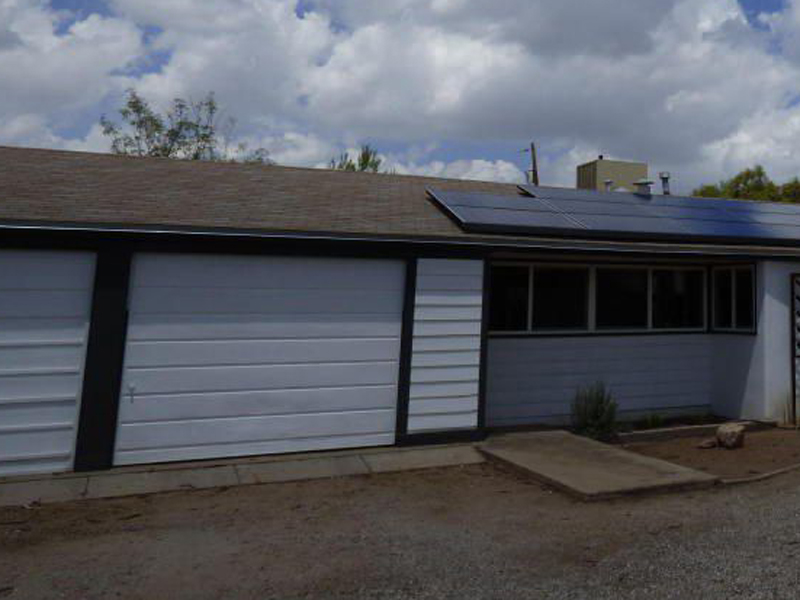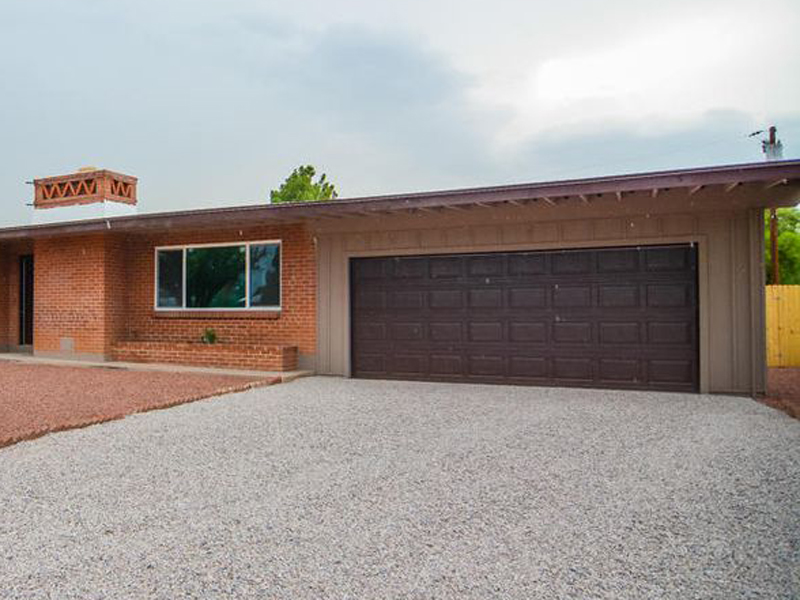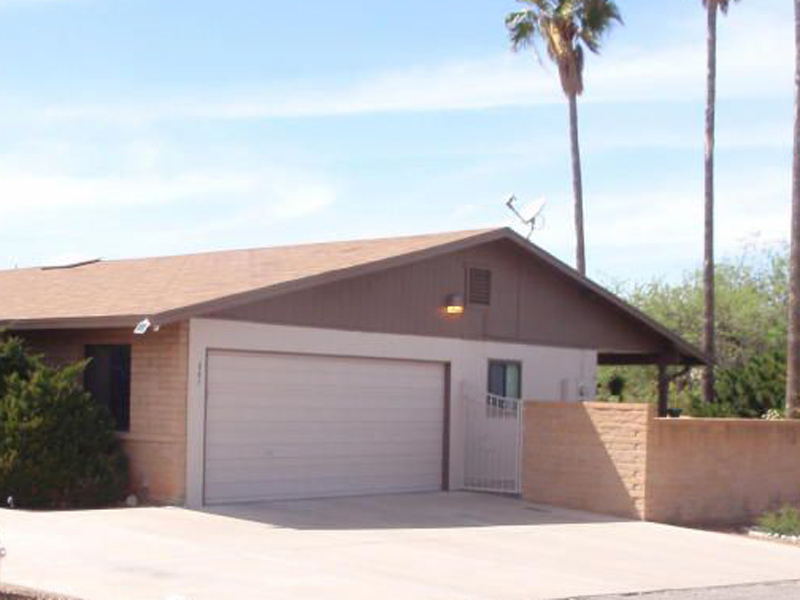Is Your Garage Door Stuck? Right here's What to Do First
When your garage door will not open up, start with these important security checks before attempting any kind of fixings. First, ensure no person is standing near the door which cars are clear of the opening. Try to find evident indicators of damages like busted panels, curved tracks, or hanging cords. If you see a snapped springtime or severely damaged components, stop quickly and call an expert—-- these repair work need specific devices and experience to take care of securely.

Inspect These 6 Points Prior To Calling an Expert
Before presuming you require costly repair services, run through this fast analysis list that fixes most garage door problems:
-
Power source: Verify the opener is connected in and the electrical outlet is functioning
-
Remote batteries: Replace dead batteries in your remote control
-
Hand-operated lock: Inspect if someone mistakenly engaged the manual lock
-
Blockages: Try to find debris obstructing the door's course or sensors
-
Emergency situation launch: Guarantee the red emergency situation cable hasn't been drawn
-
Circuit breaker: Confirm the garage circuit hasn't stumbled
These straightforward checks settle approximately 70% of garage door issues without needing expert intervention.
10 Usual Factors Your Garage Door Won't Open
Comprehending why your garage door opener isn't working aids you pick the right option. Here are one of the most constant causes homeowners encounter:
Dead remote batteries stand for the easiest fix—-- when batteries pass away, the remote can't send out signals to the opener. Power outages or stumbled breakers cut power to the motor. Damaged springs protect against the door from lifting effectively and need immediate expert focus. Sensing unit imbalance causes safety and security systems to obstruct door operation. Track blockages stop rollers from moving smoothly. Electric motor overload triggers automatic shutoffs when the opener detects resistance. Limitation switch problems perplex the opener concerning door placement. Cord damage interrupts the training system. Weather-related concerns impact door movement during extreme temperature levels. Part wear from age progressively reduces system performance.
Trouble # 1: Dead Push-button Control Batteries
When your wall surface button works but your remote does not, dead batteries are usually the culprit. A lot of garage door remotes utilize either 3-volt lithium or 12-volt alkaline batteries. Eliminate the back cover of your remote and examine the battery type. Replace with fresh batteries and test the remote. If it still does not work, you may require to reprogram it to your opener. Consult your opener's guidebook for certain reprogramming guidelines, as the procedure varies by maker.
Trouble # 2: Power Supply Issues
Garage door power issues often stem from loosened links or stumbled circuits. Check that the opener is strongly plugged into its outlet—-- resonance can loosen up links with time. Examine the outlet with an additional device to validate it's functioning. Examine your home's breaker box for tripped circuits, especially if you've experienced tornados or power variations. GFCI outlets may have stumbled and need resetting. If the opener has power but will not respond, the concern likely lies in other places in the system.
Trouble # 3: Broken or Damaged Springs
Broken garage door springs are amongst the most hazardous elements to handle. If you listen to a loud bang from your garage or see the door feels exceptionally heavy when attempting to lift by hand, a spring has actually likely broken. Torsion springs run flat above the door, while expansion springs sit on either side. Never try spring fixings on your own—-- these components save remarkable tension that can trigger major injury or fatality. Professional substitute commonly sets you back $150-$300 yet ensures your safety and security.
Issue # 4: Blocked Safety Sensing Units
Modern garage doors include security sensing units that protect against closure when items are detected. These sensors can quit the door from opening up if they're unclean, misaligned, or obstructed by debris. Tidy sensor lenses with a soft cloth and make sure absolutely nothing blocks the undetectable beam of light in between them. Examine that sensing units are effectively straightened—-- most have sign lights that show link condition. Sensing unit troubles frequently settle with straightforward cleaning and change.
Issue # 5: Track Obstructions or Damage
Garage door tracks guide rollers as the door moves up and down. Dust, particles, old grease, or small things can jam the system. Inspect tracks visually and remove any obstructions with a brush or towel. Look for damages, flexes, or warping that can hamper smooth operation. Small track changes are possible for convenient home owners, yet significant damages needs expert repair work to stop further problems or safety hazards.
Problem # 6: Garage Door Opener Electric Motor Issues
When the garage door electric motor runs but the door does not relocate, several concerns could be accountable. The electric motor might be overwhelmed and shutting off as a safety measure. Gear wear, specifically in older systems, can avoid appropriate operation. Chain or belt drive issues influence power transmission. If you listen to unusual grinding, clicking, or humming noises, stop using the opener quickly. Motor repairs frequently cost greater than replacement, particularly for systems over ten years old.
Detailed DIY Troubleshooting Overview
Follow this methodical method to garage door fixing while focusing on safety throughout the process:
Step 1: Test the wall surface button first. If it works yet the remote does not, focus on remote issues. If neither works, check power supply.
Action 2: Examine the hands-on release cord. If it's been drawn, the opener is disengaged from the door. Press the trolley back to reconnect.
Step 3: By hand test the door by disengaging the opener and attempting to raise the door by hand. It ought to move efficiently and remain in place when half-open.
Step 4: Examine visible elements for damages, paying special focus to springtimes, cable televisions, and tracks.
Tip 5: Check all security attributes consisting of sensors, limit switches, and auto-reverse features.
Step 6: Test various controls (remote, wall switch, keypad) to isolate the trouble resource.
Constantly wear safety glasses and job gloves when carrying out inspections, and never effort repair services on springs or high-tension parts.
When to Call a Specialist vs. do it yourself Solutions

Recognizing when to call a garage door expert versus trying DIY fixings protects both your safety and your pocketbook. Take care of these problems yourself: dead remote batteries, power supply troubles, small track cleaning, sensor cleaning and positioning, and basic lubrication.
Never ever attempt these repair work yourself: spring substitute or modification, cord repair work, significant track realignment, electrical wiring issues, opener electric motor substitute, or any fixing including high-tension parts. Professional professionals have specialized devices, training, and insurance to take care of unsafe fixings securely.
Think about fixing expenses versus replacement prices, specifically for doors over 15 years old. Modern garage doors provide far better security features, energy performance, and integrity than older designs.
Emergency Garage Door Solutions
When you're stuck to a garage door that will not open and require prompt accessibility, follow these emergency treatments:
Guidebook Operation: Draw the red emergency situation release cable to disengage the opener. This permits hand-operated procedure but needs appropriate strategy to prevent injury. Lift the door slowly and equally, making use of leg muscle mass as opposed to your back. Many household doors consider 100-150 pounds, making them convenient for many adults.
Short-lived Fixes: If the door opens by hand yet will not stay up, prop it open with sawhorses or clamps—-- never ever utilize your body or vehicles as supports. For doors that won't close totally, ensure the opening is safeguarded if you must leave.
Emergency Solution: Several garage door firms offer 24/7 emergency situation service for scenarios entailing protection concerns, caught cars, or total system failings. While more costly than normal solution calls, emergency situation repair work provide immediate options when required most.
Safety Warning: What NOT to Do
Garage door safety and security calls for annual garage door maintenance service benefits recognizing dangerous repair work that need to never ever be tried by home owners:
Never attempt to fix springs—-- they store enough energy to create deadly injuries when they break or are incorrectly managed. Don't require a stuck door—-- this can damage the opener, tracks, or door panels, developing more pricey troubles. Prevent bypassing safety and security functions—-- sensing units and auto-reverse systems stop serious injuries and residential or commercial property damage.
Do not overlook strange noises—-- grinding, scraping, or banging audios suggest troubles that aggravate with time. Never ever utilize the door if wires are torn or damaged—-- the door can drop suddenly. Do not attempt electrical repair work unless you're a certified electrician—-- garage door openers utilize both 120V house existing and low-voltage control circuits.

Preventive Maintenance to Stay Clear Of Future Issues
Normal garage door maintenance protects against most typical troubles and extends system lifespan significantly:
Monthly Jobs: Aesthetic examination of all components, examining auto-reverse safety functions, inspecting and tightening up hardware, and cleaning tracks and sensing units.
Quarterly Jobs: Lubricating all moving get rid of suitable garage door lube, screening manual operation, and inspecting weather sealing.
Yearly Jobs: Expert evaluation and tune-up, springtime adjustment if required, and opener maintenance including belt or chain adjustment.
Seasonal Tasks: Preparing for weather condition extremes, checking insulation, and readjusting opener settings for temperature level adjustments.
Regular maintenance prices much less than emergency situation fixings and ensures trusted procedure year-round.
Garage Door Will Not Open Frequently Asked Questions
Why won't my garage door open with the remote but collaborates with the wall button?
This usually indicates dead remote batteries, signal disturbance, or the need to reprogram the remote. Examine batteries first, then consult your opener guidebook for reprogramming guidelines.
Can I manually open my garage door if the power is out?
Yes, pull the red emergency situation launch cord to disengage the opener, then raise the door manually. Be prepared for the door's complete weight and lift with appropriate technique to stay clear of injury.
Exactly how do I know if my garage door springtime is damaged?
Indications include a loud bang from the garage, the door sensation very hefty when lifting manually, visible voids in the springtime coils, or the door just opening up a couple of inches before stopping.
Is it secure to use my garage door if it will not open up all the way?
No, partial operation suggests mechanical problems that could aggravate all of a sudden. Quit using the door and have it evaluated by a professional to stop additional damage or injury.
What should I do if my garage door opens up but won't close?
Check security sensing units for obstructions or misalignment, take a look at the tracks for debris, and evaluate the auto-reverse feature. If these don't resolve the problem, seek advice from a professional.
How much does it cost to repair a garage door that will not open up?
Expenses differ widely depending upon the issue: battery substitute ($5-$10), professional diagnosis ($50-$100), spring replacement ($150-$300), or opener substitute ($200-$500).
Can weather impact my garage door's capability to open up?
Yes, extreme cold can thicken lubes and affect metal components, while warm can cause expansion concerns. A lot of issues solve as temperatures stabilize, however relentless concerns might need professional attention.
Why does my garage door open up a few inches then stop?
This normally suggests busted springs, limitation button troubles, or track obstructions. The opener's security features stop procedure when resistance is detected, preventing damages to the motor or door.
Get Professional Aid for Facility Concerns
When do it yourself repairing doesn't settle your garage door troubles, professional technicians offer the knowledge and devices needed for risk-free, long lasting repair work. Qualified specialists detect issues properly, use manufacturer-approved parts, and provide service warranties on their work.
Specialist services include: comprehensive system inspections, springtime and wire replacement, opener repair and substitute, track placement and replacement, electrical troubleshooting, and emergency solution telephone calls.
What to anticipate: in advance rates, certified and insured service technicians, same-day service for many repair services, and follow-up upkeep recommendations.
Most garage door business offer free quotes for significant repair work and can supply prompt remedies for urgent issues influencing home safety and security or lorry access.
Getting Your Garage Door Working Again
A garage door that won't open doesn't need to ruin your day or damage your spending plan. Begin with basic troubleshooting actions like checking power, replacing batteries, and taking a look at for evident blockages. Lots of troubles have fast do it yourself solutions that bring back normal operation within mins.
Nonetheless, recognize when specialist help is required—-- particularly for spring-related problems, electric problems, or complicated mechanical failures. Trying hazardous repair services on your own takes the chance of severe injury and commonly develops extra expensive problems.
Normal upkeep prevents most garage door issues and ensures reputable operation for years to come. When issues do occur, address them immediately to stay clear of more pricey repair work and preserve your home's security and convenience. Whether you require a basic battery replacement or full system overhaul, remedies exist to obtain your garage door working smoothly once again.